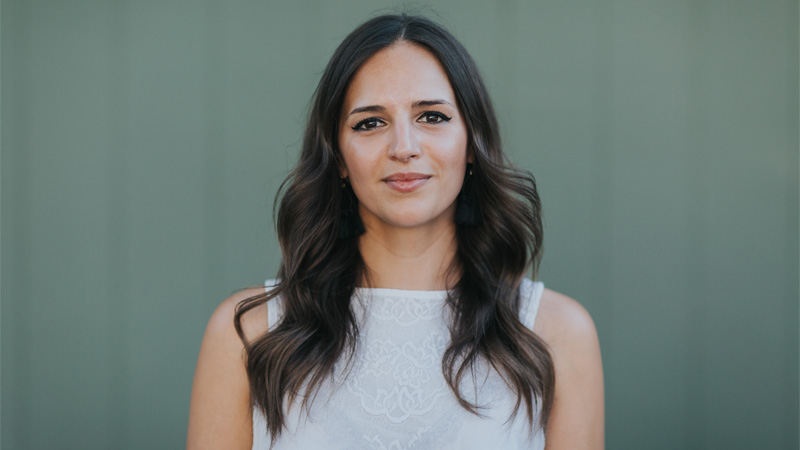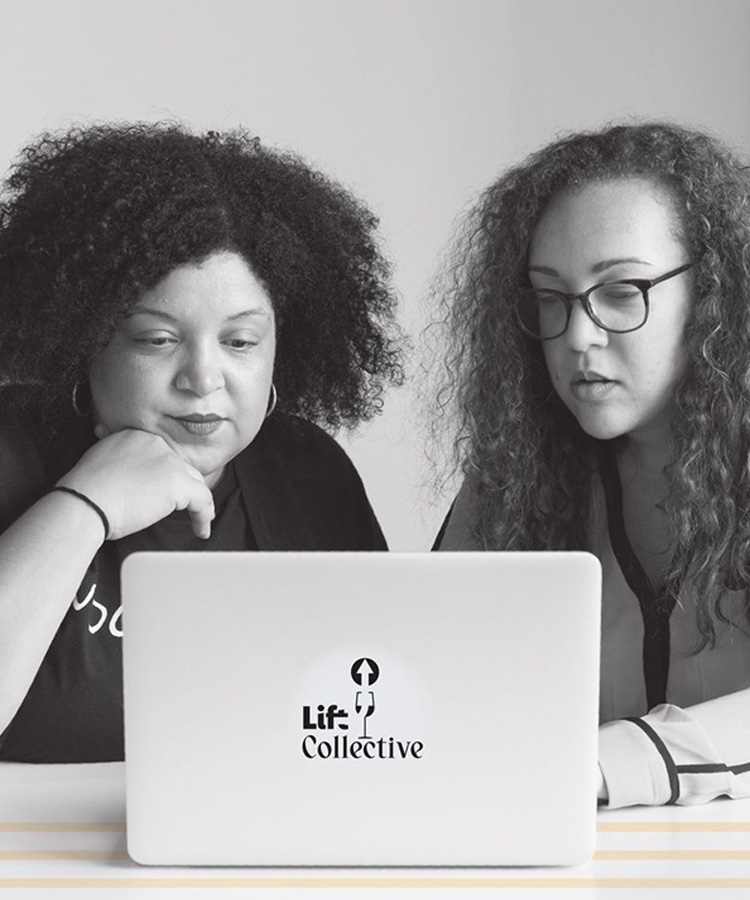
Earlier this year, we spoke with Lift Collective (formerly Wonder Women of Wine), a platform designed to bring access and equality to the wine industry for marginalized peoples of all backgrounds through discussion, mentorship, and scholarship opportunities offered to those who have traditionally been underrepresented by or within the wine industry.
As is the case for many, this past year threw Lift Collective’s founders for a loop. After discussing the origins of the organization and how 2020 challenges forced them to refocus their efforts, VinePair sat down with co-founder Rania Zayyat to further discuss Lift Collective’s 2021 goals, the changing faces of the wine industry, and what the future of wine looks like through their eyes.
1) What are some of the themes/trends that Lift Collective is focusing on in 2021?
Zayyat: We are focusing on several things that we were planning to cover at last year’s conference, but through more of an intersectional lens that pertains to our rebranding, as well as [consideration for] the social movements that have been happening in 2020 and 2021. Some of the topics we’re covering include reimagining wellness in wine, as well as access to mental health resources and how those relate to activism and self-advocacy within the industry.
We’re also talking about equity, inclusion, and how marginalized groups can come together to bring diversity and inclusivity to the forefront of the wine industry. We’re talking about the shift of women in wine culture and the [fluid] idea of how feminism is changing in 2021, as well as bringing more focus to intersectional feminism and empowering/amplifying all of the different people and experiences in our industry.
Another theme is entrepreneurship. One of our upcoming panels is called “Making Space for Self-Made,” which focuses on entrepreneurial resources and the pros and cons of entrepreneurship in the wine industry, as well as how entrepreneurship can be a powerful way to carve out individual niches as far as building your own brand, and how one can create change through doing that.
Another focus for 2021 is addressing hospitality abuse in the industry, which has been a significant topic due to the state of restaurants and in general with Covid. We’re also focusing on systematic exclusion and the success of tenacious women throughout the history of the wine trade.
2) How have you been using the virtual space (Zoom, Instagram, etc.) to execute these goals?
Zayyat: Instagram is one of our most used and powerful platforms, as it really brings our mission to light through its ability to highlight different organizations and initiatives that are centered on similar goals as ours. Being able to use our platform as a shared community space to highlight the work that other people are doing in addition to what we’re doing, as well as shed light on other inspiring people through our Collective Friday interviews (formerly referred to as Femme Friday) has been great.
Each week, our interviews feature a different person in the wine industry. We ask them about what they’re doing, what their views on equality look like in the industry, and what advice they have for people entering the industry. It’s been a really great way to highlight a diverse group of inspiring people that are creating change through their work.
We also started a webinar series, where we amplify the voices of Black Women in wine. It’s on a temporary pause right now, as we’re preparing for our annual conference, but we’ll start back up after March. We also held our first gender equality survey last year and published results on social media and our website. We’re planning on issuing our second survey this year, which will build upon key takeaways from last year’s responses.

3) What are some of the main ways that Lift Collective has seen growth despite the pandemic?
Zayyat: We’ve done a really great job in broadening our network and our relationships. There have been so many organizations and initiatives that have popped up that we’ve been able to work with, one of which is Diversity in Food and Beverage (formerly Diversity in Wine and Spirits). They launched around the same time that we did back in 2018, and we were able to partner with them for our Be the Change job fair that we hosted last December.
The job fair has been a really key component to the work that we’re doing, as far as not just having conversations, but actually creating a space for facilitating connections between employers that are committed to building their DEI (Diversity Equality Inclusion) programs through bringing a pool of diverse talent to a space where people can connect.
4) Lift Collective emphasizes inclusion (as opposed to just diversity) and how being treated and engaged with — simply beyond having equal access to spaces — is crucial. What are some tools and tactics that you use to help companies foster inclusion over simple access?
Zayyat: Feeling included often begins with the ability to identify with someone in leadership. These changes must come from the top down. We know that visibility and representations are important components of inclusion, and that’s why we are focusing on bringing as many diverse perspectives to our conference as possible. We want to engage with a larger and more diverse audience.
Through Be The Change, we had each of our participating exhibitors fill out a survey that provides us insight into their current DEI practices and initiatives so we can better understand where we are as an industry. This type of comprehensive data doesn’t currently exist, and it’s important for us to know so we can better understand what immediate and long-term changes we need to make to move forward. Our goal is not to police companies but to educated them on the work that needs to be done.
5) How do you encourage employers and businesses away from the whole “box-ticking” mentality towards diversity and inclusion?
Zayyat: Box ticking often relates to diversity, but not inclusion, and one cannot exist without the other. Diversifying a space is a shortsighted and short-term initiative, because if people don’t also feel included, they’re not going to stick around. Our goal is to educate the industry on how to create inclusive environments so that diversity happens naturally. Our goal is to call people in, give them the data, have educational conversations, and allow them to go back and do the work.
6) Who are some of the people you’re working with or partnering with this year and in what capacity?
Zayyat: We’re continuing our work with Diversity in Food and Beverage (partners in the Be the Change Job fair taking place in April). I am personally a member of the Hue Society Council of Resources (C.O.R.), founded by Tahiirah Habibi. Hue Society has launched city chapters around the country (with more chapters launching this year) to build community amongst BIPOC professionals working in wine through dedicated C.O.R. mentors, industry-led events, discounts, and scholarships. This year, we’re looking to create more opportunities to do cross-promotional work with organizations that share our values and have a similar mission as ours.

7) How are these partners chosen?
Zayyat: It first starts with building personal relationships, then looking at their initiatives and having one-on-one conversations. It’s about being in community with everyone. With so many great organizations, we recognize that one cannot be doing all the work. Each of us is focused on lifting up a specific community, or offering scholarships, mentorship programs, community resources, or education while all pursuing a common goal. Our goal is to collaborate so that our initiatives are more effective as we work together.
8) What are some new collaborations we can expect from Lift Collective this year?
Zayyat: One of the things that we’re hoping to build out a bit more is our scholarship program. In years prior, we’ve partnered with some other organizations, such as the Austin chapter of Les Dames d’Escoffier International (focused on women in food and beverage), with whom we were able to issue an Educational Development scholarship. Last year, we partnered with Becky Wasserman Co. to offer an educational trip to Burgundy. We’re finding that now that there are so many groups offering scholarship opportunities to marginalized communities, it’s a great moment for us to collaborate with the framework in place.
Stay tuned for further developments on Lift Collective’s initiatives and offerings. To learn more about Lift Collective, visit https://liftcollective.org/.
